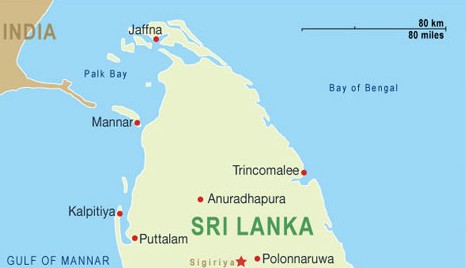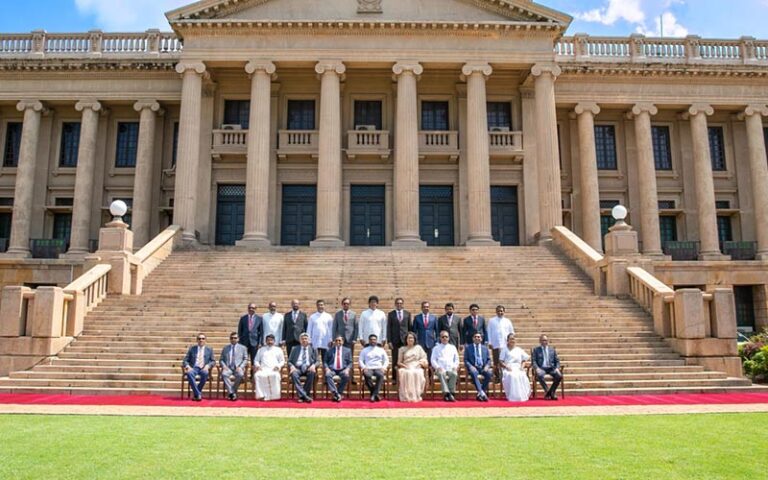 Despite an increase in earnings from garment exports to the US and EU, Sri Lanka is losing market share to competitor countries Bangladesh, India, Vietnam, Pakistan and Cambodia, the Institute of Policy Studies (IPS) says.
Despite an increase in earnings from garment exports to the US and EU, Sri Lanka is losing market share to competitor countries Bangladesh, India, Vietnam, Pakistan and Cambodia, the Institute of Policy Studies (IPS) says.
“Despite considerable increases in absolute export earnings to both and US and EU markets, it is of concern to note that Sri Lanka’s relative market share in garment exports has been losing ground. The increase in export earnings over the years has been due largely to a shift in Sri Lankan garment exports from the US to EU,” the IPS said in its recent flagship publication ‘Sri Lanka: State of the Economy 2012’.
“Sri Lanka has been seeing a steady decline in its market share in the US from 2.3 percent in 2005 to 1.8 percent in 2011. Sri Lanka has been losing out to countries such as Pakistan, Vietnam, Bangladesh, Indonesia and Cambodia. Pakistan’s share in the US apparel market was significantly below that of Sri Lanka in 2005 at 1.8 percent, but is now ahead at 2.1 percent. Diversification of its product range, marketing and large investments in value-added sectors including sewing machines, stitching, knitting, finishing and knitting processing have contributed towards Pakistan’s progress,” the IPS said.
“While Sri Lanka has been successful in penetrating the EU market, 2010 and 2011 have seen a marginal decline in the share compared to 2009. Moreover, Sri Lanka is bound to lose its foothold further as the EU GSP Plus concessions eroded. Sri Lanka garment exports will face higher tariffs under the new reforms that would come into effect from 2014. Whereas China and Turkey still account for over half of the garment export share in the EU, Sri Lanka has been losing its market share to competitor countries such as Bangladesh, India, Vietnam, Pakistan and Cambodia. Bangladesh has been particularly successful in penetrating the EU market, with an increase of 6.2 percent in 2009 to 11.2 percent in 2011.
“Bangladesh is already a beneficiary of GSP Plus concessions, and Pakistan will also become eligible under the new reforms. Additionally, India is scheduled to sign a free trade agreement with the EU in 2014 which would guarantee benefits to Indian garment imports through tariff preferences.
“With competitor countries gaining from such tariff concessions, securing market share in the EU would be a challenging task for Sri Lanka in 2014 and beyond. Therefore, it is imperative that market diversification takes place in Sri Lankan garment exports. In this respect, Sri Lanka has made rapid inroads in to new markets such as Turkey and the United Arab Emirates,” the IPS said.
According to latest data available, export earnings from apparel fell 4.6 percent year-on-year to US$ 3,633.3 million during the period January to November 2012.
A leading trade expert said Sri Lanka was losing a considerable amount of foreign exchange each year after losing GSP Plus trade concessions to the European Union.
“After losing GSP Plus we are losing a considerable amount of foreign exchange in terms of opportunity cost. A leading apparel exporter, who I will not name, found that he would have to incur an additional cost of euro 25 million to export to the EU. What did he do? He invested US$ 25 million on a production facility in Vietnam,” Asia Shippers’ Council Secretary General Rohan Masakorala said addressing the annual sessions of the Sri Lanka Economic Association last October.
He said that markets in the US and EU were still important to Sri Lanka on account of the buying power of consumers in those destinations.
“We could probably export to China but they would soon copy our products and produce it themselves. India is also a difficult option because of the very difficult bureaucratic environment. These two markets are very different cultures altogether. This is why it is important to enhance our trade with the US and EU,” Masakorala said.
Former Director General of Department of Commerce Gomi Senadhira has written extensively on this issue in The Island Financial Review. He argues that by withdrawing GSP Plus, the European Commission had acted in contravention of WTO trade practices.
Industry sources said the country was losing around US$ 1 billion each year on account of the withdrawal of GSP Plus.
Source: The Island (Sri Lanka)




